Having experienced three major waves of FDI, it now stands poised to usher in a fourth wave, marked by a strategic shift in investment attraction directions and investment quality.
In the lead-up to, during and following US President Joe Biden’s visit to Vietnam in September 2023, and the subsequent trip to the US by Vietnamese Prime Minister Pham Minh Chinh, key leaders from major US tech and semiconductor companies, including Synopsys, Google, Intel, Amkor, Marvell, Boeing, Qualcomm, and Ampere, have actively explored investment opportunities in Vietnam.



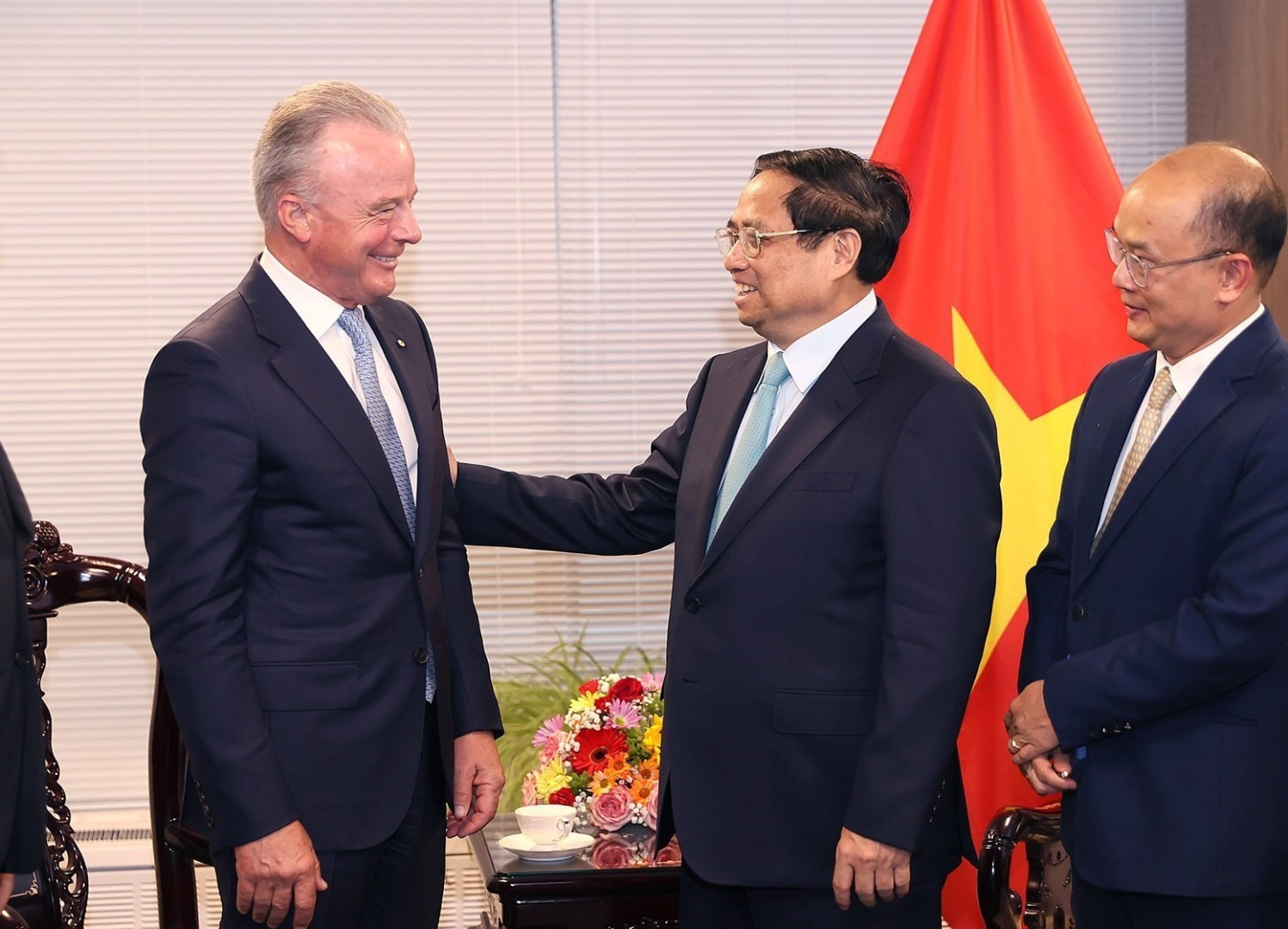
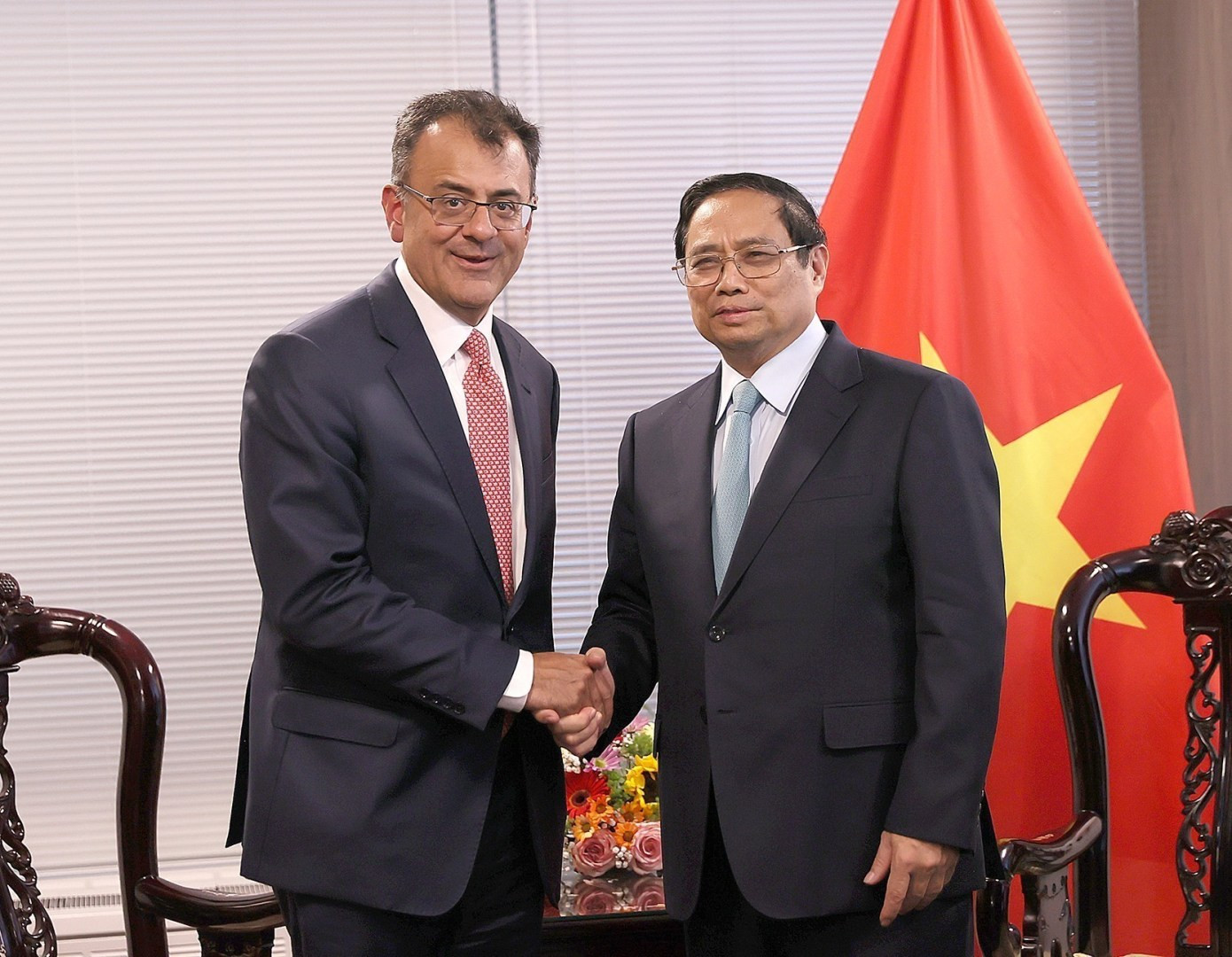
Prime Minister Pham Minh Chinh works with top US conglomerates. (Photo: VNA)
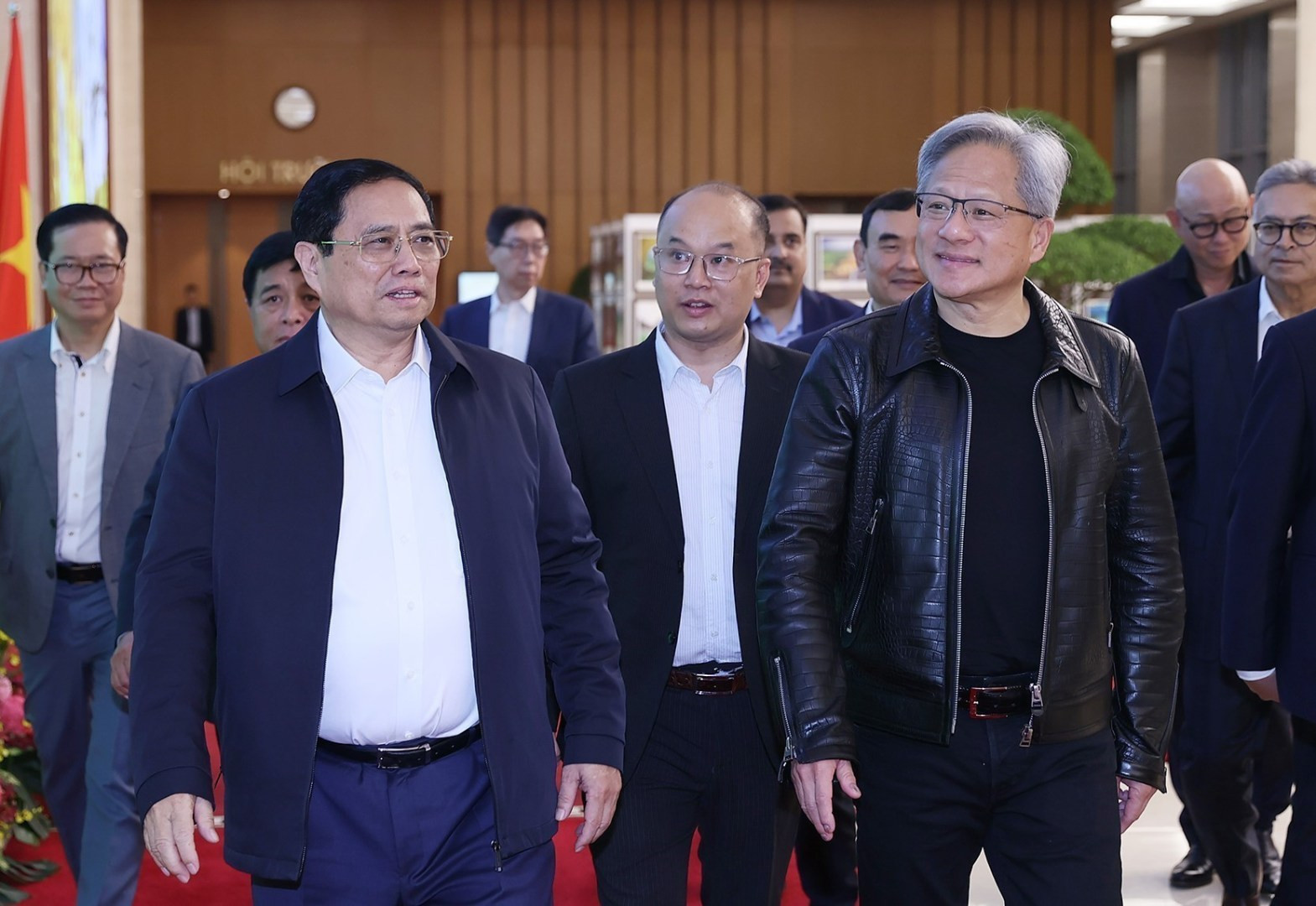
Notably, Jensen Huang, CEO and President of US chip giant Nvidia, conducted an important survey in the Southeast Asian nation in mid-December 2023. Huang was pleasantly surprised when local residents recognised him while he was enjoying street food in Hanoi’s Old Quarter. Shortly after the event, he had a meeting with the Ministry of Planning and Investment (MPI) at the National Innovation Centre, and the businessman expressed a strong commitment to establishing Nvidia’s entity in Vietnam, making the country its “second home.”
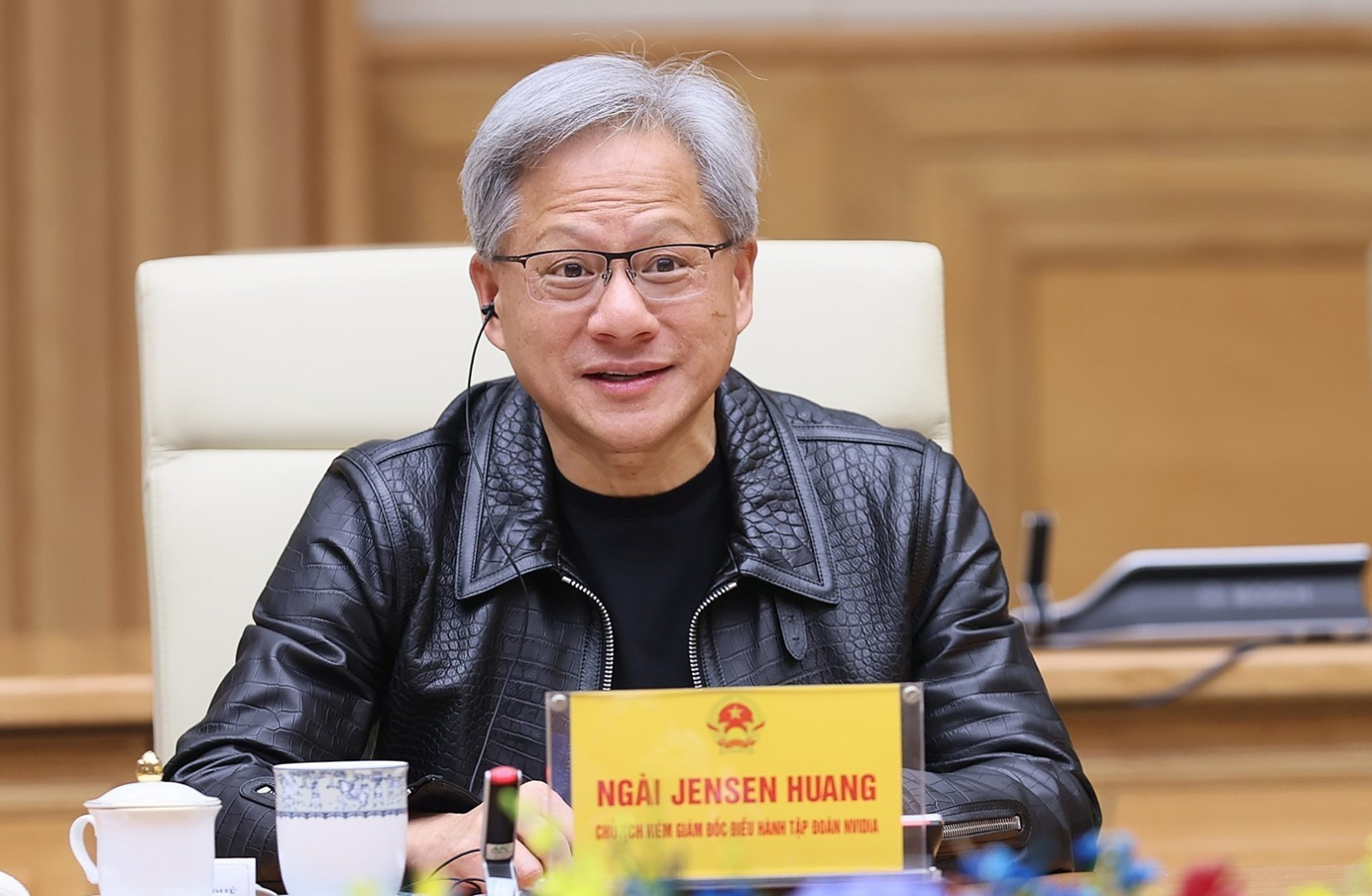
From a regulatory agency’s perspective, Director of the MPI’s Foreign Investment Agency Do Nhat Hoang noted a burgeoning new wave of investment into Vietnam driven by soaring investment demand from key partners such as the Republic of Korea (RoK), Japan, China, and the US.
Specifically, the RoK’s New Southern Policy places Vietnam at the top position, and Korean investors have acted swiftly. Samsung alone has expanded its capital to a total of 22 billion USD across various projects in Vietnam.
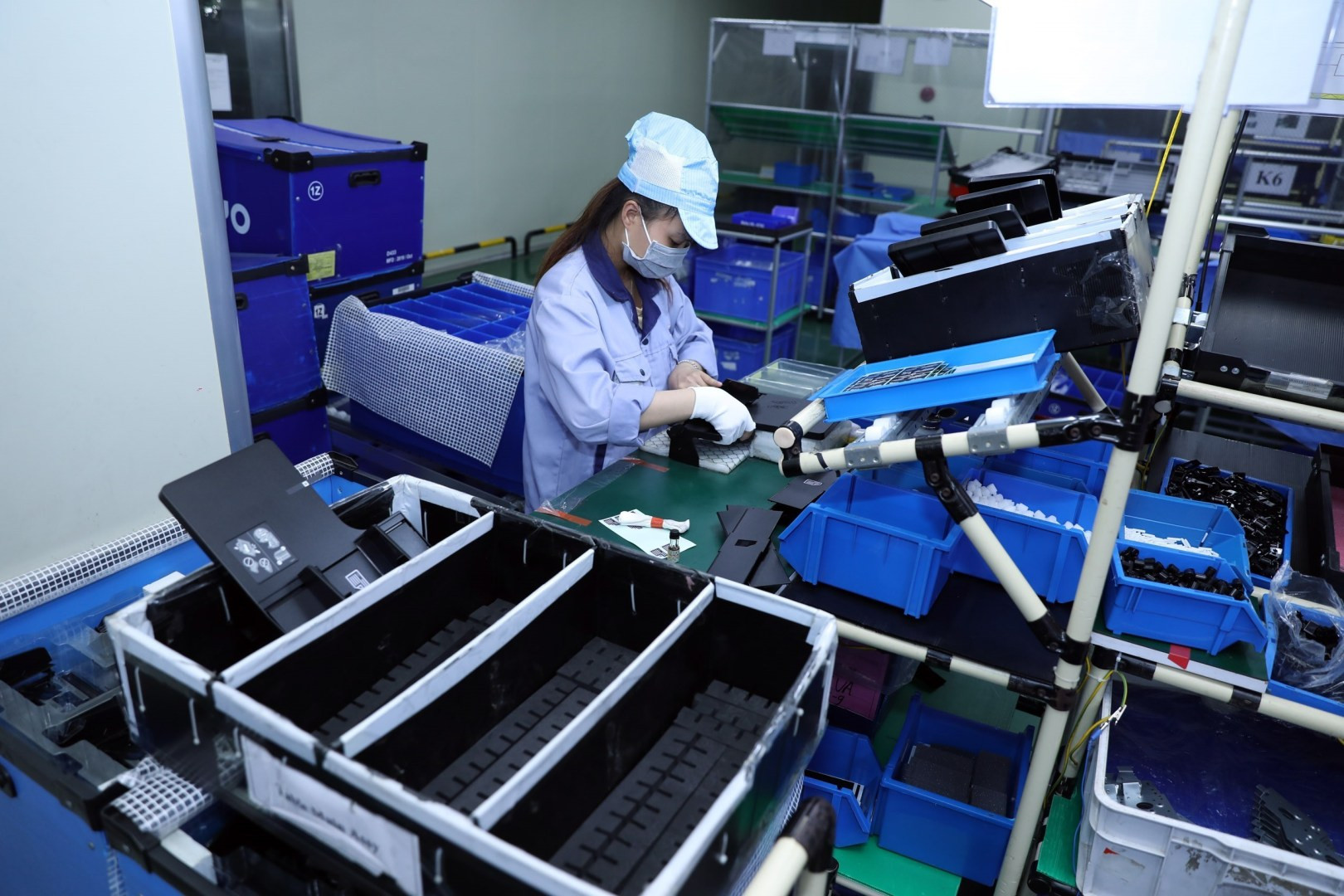
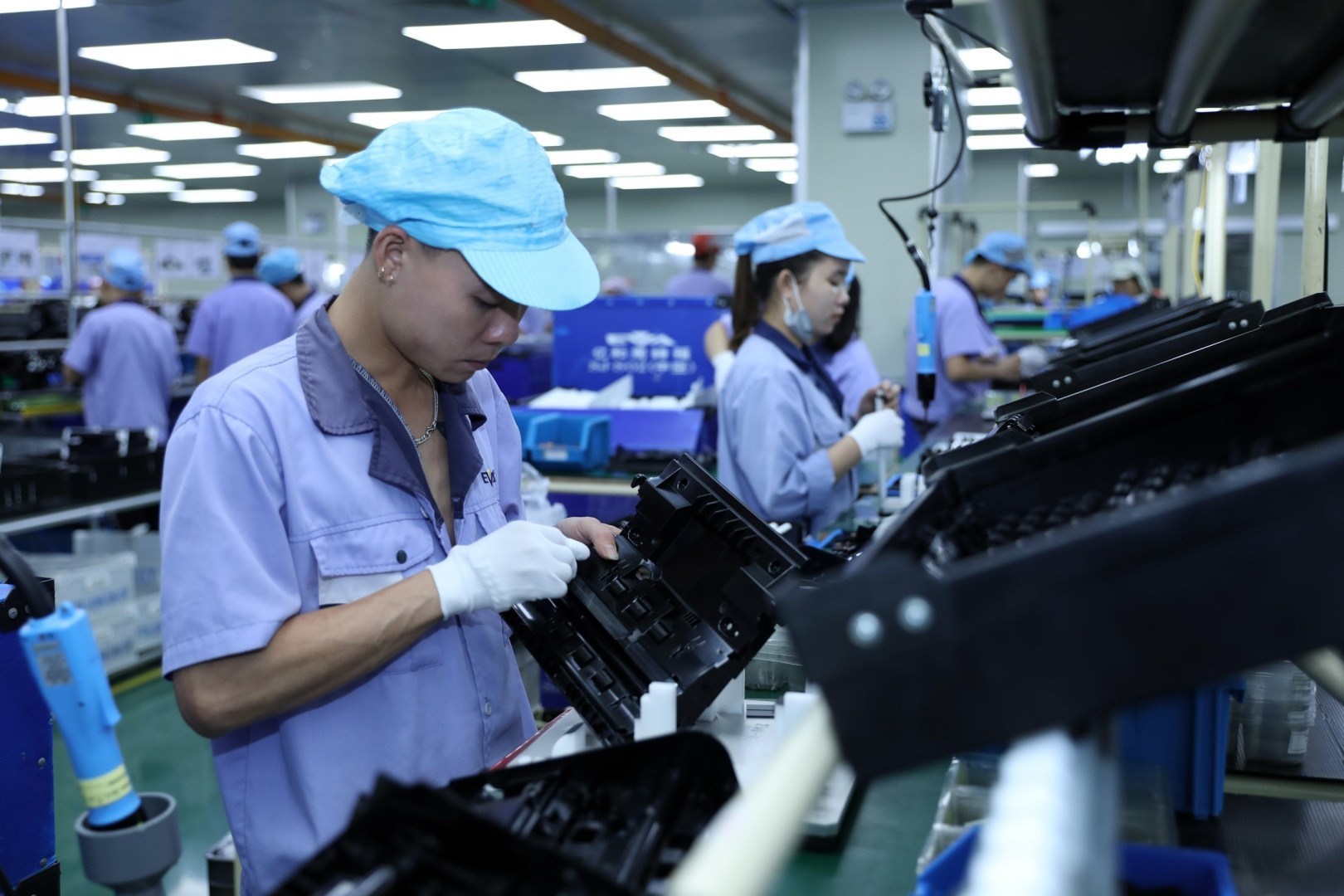
China has also significantly increased its investments in Vietnam, particularly through major projects by top global corporations. (Illustrative photo: VNA)
China has also significantly increased its investments in Vietnam, particularly through major projects by top global corporations. Meanwhile, there is growing interest from US companies, with many groups now quietly coming to explore Vietnam’s semiconductor ecosystem, Hoang revealed.

Le Anh Dung, CEO of the Institute for International Investment Studies (ISC), agreed that Vietnam is on the brink of a fourth investment wave. Each wave has coincided with a particular historical period, and this latest one is characterised by the keen interest of global tech giants. Unlike previous waves when localities competed primarily by offering tax incentives and lowering land use fees, this time’s focus is on creating an optimal environment.
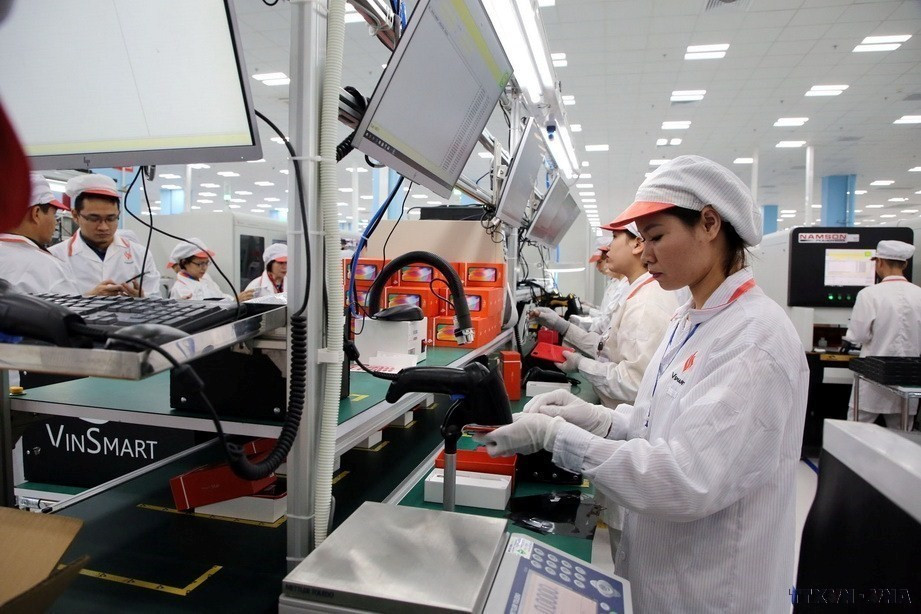

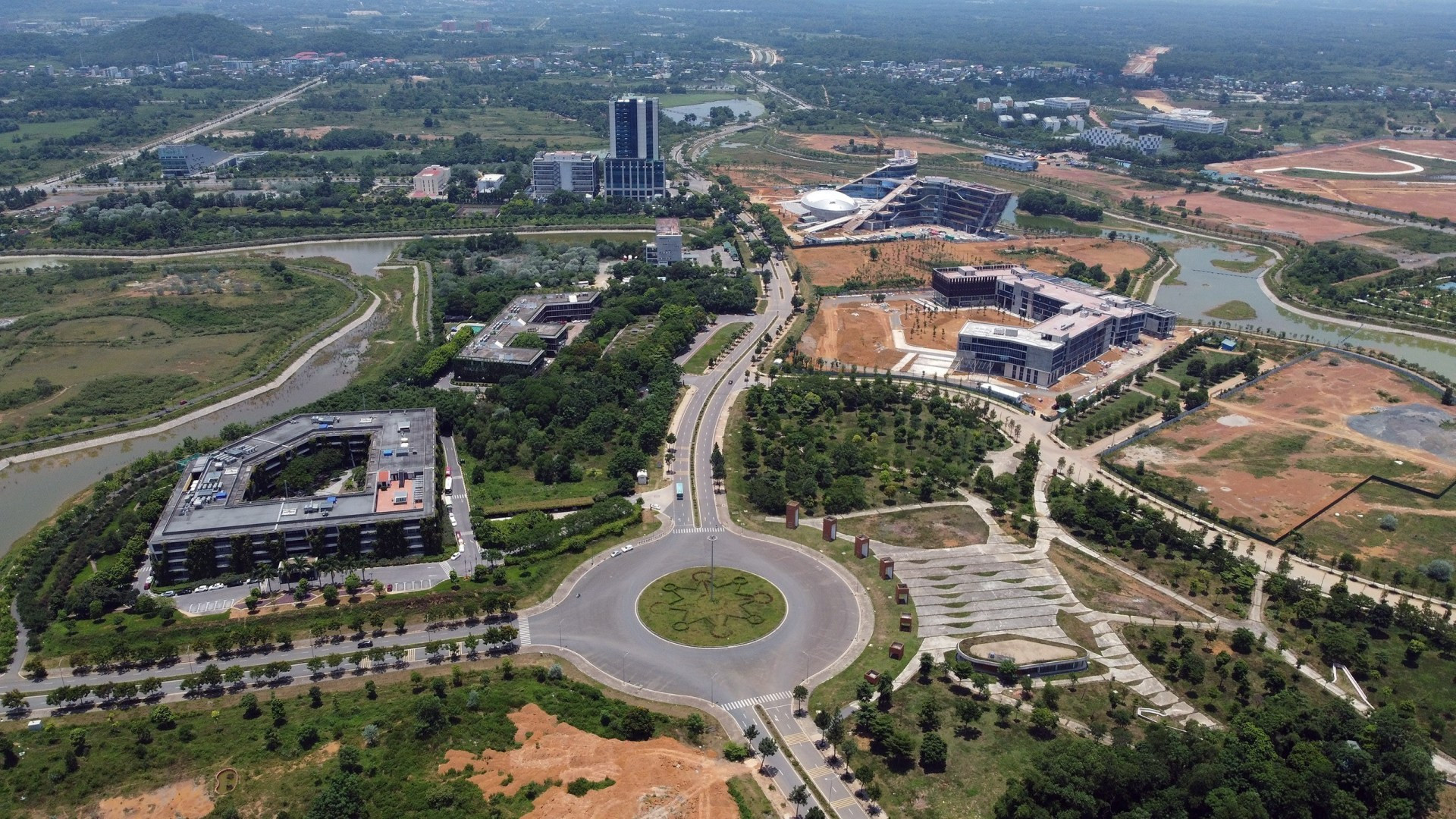
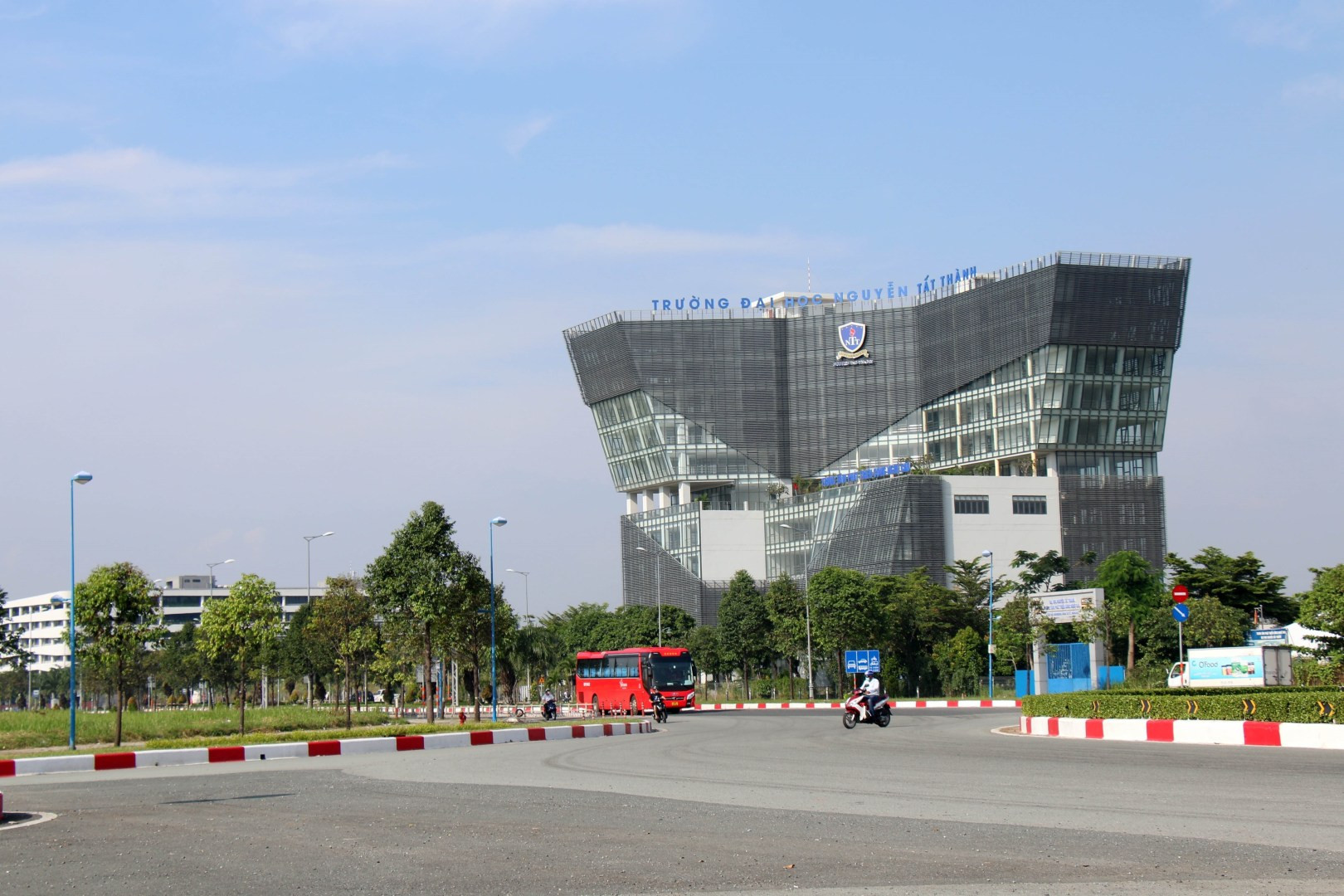

Vietnam hosts several high-tech parks, including the Hoa Lac High-Tech Park in Hanoi and Saigon Hi-Tech Park in Ho Chi Minh City. (Photo: VNA)
A critical foundation for this important shift is the implementation of the National Assembly’s Resolution No. 81/2023/QH15 on a national master plan for 2021 – 2030 with a vision to 2050, providing local governments with a framework to leverage new opportunities and value in mobilising investment resources for development, including FDI.

Deputy Minister of Planning and Investment Tran Quoc Phuong praised the dynamism of Bac Giang in preparing for an influx of FDI. Despite challenges posed by the COVID-19 pandemic, the northern province meticulously and scientifically developed its provincial master plan, becoming the first to have its plan approved by the Prime Minister, in February 2022. This readiness has enabled it to attract shifting global supply chain investments, exemplified by Foxconn’s Fukang Technology plant, which produces Apple products like iPhones, iPads, and MacBooks at a scale of approximately 8 million units on a yearly basis.
Similarly, the northern province of Nam Dinh has proactively drafted its provincial master plan to attract foreign capital, successfully bringing in major names such as Quanta Computer, Toray Group, and Crystal.
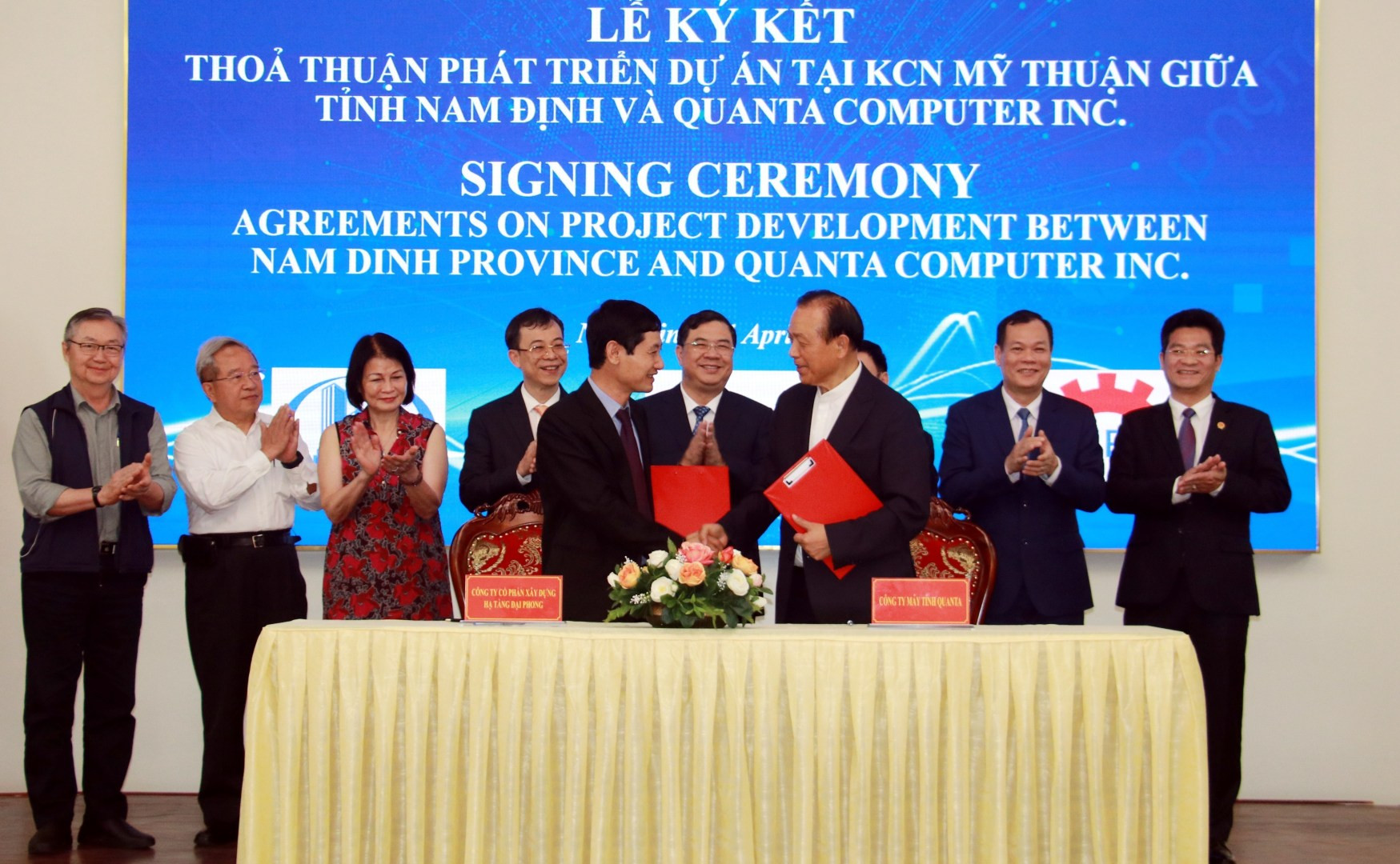
Pham Gia Tuc, Secretary of the Nam Dinh Party Committee, emphasised the significance of Quanta Computer Inc.’s investment in computer manufacturing in the province. This project underscores Nam Dinh’s potential to attract high-tech investments, which could help the province reclaim its position as a northern industrial hub. While Quanta’s initial investment is 120 million USD, local leaders are confident that the project will expand, making Quanta computers as prevalent as Samsung phones.
The sustained FDI growth in Vietnam in early 2024, amidst a continued slowdown in global investment, demonstrates the country’s enduring appeal to international investors.

Nguyen Van Toan, Vice President of the Vietnam’s Association of Foreign Invested Enterprises, perceived that one key factor driving this confidence is the US’s interest in diversifying its semiconductor supply chain, given concerns over tensions in the Asia-Pacific, where much of the world’s semiconductor manufacturing is concentrated, particularly in Taiwan (China).
He said the current period represents a pivotal moment for qualitative transformation in Vietnam’s nearly four-decade journey of foreign investment cooperation./.
The second wave began in 2007 and lasted until 2014, marked by the country’s merger of domestic and foreign investment laws into the Law on Investment. A notable highlight of this period was Korean conglomerate Samsung’s decision to establish its presence in Vietnam.
The third wave started in 2015, characterised by a resurgence of FDI inflows, averaging 20 – 25 billion USD annually.
Currently, as the country has become a comprehensive strategic partner of the US, Vietnam is on the brink of the fourth wave of FDI, attracting a surge of interest from major global technology companies who are eager to explore investment opportunities in high-tech sectors. Source: International Investment Studies (ISC)
VNA